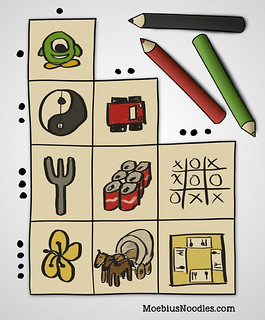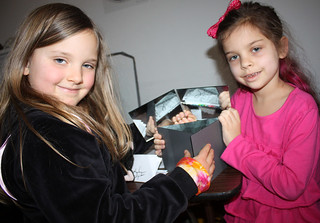Multiplication Explorers FAQ
These are Frequently Asked Questions for the Multiplication Explorers online course.
- Is my child too young for this course? Is it best to wait until my child learns to read/count/add?
The youngest participant in one of our courses in the past was 5 months. Multiplication Explorers is designed for families and groups with kids of all ages. Even toddlers can participate and contribute. We have advice on how to adapt each activity for younger and older children. As a parent, it’s never too early to transform your relationship with mathematics! Most Multiplication Explorers activities have no prerequisites.

- What if I can’t start the course on February 9? What if I cannot do a new activity every day?
This is a self-paced course. We will start sending activities and open the course forums on February 9. You will receive a new e-mail from us 5 days a week for 3 weeks. Whether you choose to complete one activity each day, every couple of days or just play a couple of games on a weekend, it is up to you. All the course materials, including access to forum, will remain open and accessible to you for as long as you need them. - How often should I do the course activities with my child? And for how long?
Plan for 15 to 30 minutes a day to get a taste of doing the activity together. Schedule good time for it, arrange your working place with snacks, plushies, music, and other feel-good props, and in general give some thought to designing a pleasant experience. With younger or less interested kids, you can go even faster, 3-5 minutes at a time. If the activity is engaging, you can keep going for hours. Some kids return to favorite activities again and again, even years after starting them.

- Who is this course not for?
- This course is not for adults who want to give kids activities and leave. It assumes adults participate most of the time. Children play a very active role, and there isn’t much prep time for adults, but our math is not a spectator sport. You’ll be on the field, playing the game.
- This course is not for people who want very scripted, paint-by-number exercises. It provides a lot of support, always with the goal of you and your kids growing the power to make math your own.
- This course is not for people who are looking only for ways to improve child’s fluency and recall. While several activities in the third week deal with the patterns that help fluency, fluency and recall are not primary goals of the course.
- I am not comfortable with math. Will I be able to lead these activities? What if I don’t understand a description or don’t know how to start?
Short answer: yes! We’ve ran similar courses many times, and observed hundreds of participants. Many of them were uncomfortable with math, or even anxious – at first. Each activity has multiple levels of help, “what if” scenarios, and different approaches. You’ll have peer support just by seeing what other participants do. We are confident that most people can do it. If you are very concerned, select the level of participation in the course that gives you more individual help. - My child has special needs. Will the activities in this course work for us?
We have a big – and growing – list of adaptations that can apply to meet special needs. These adaptations fit most activities. They include hands-on work, outdoors experiences, switching from fine to gross motor skills, using sounds or visuals, and making bridges to arts and sciences. If an adaptation you need is missing for an activity you like, we will help you create it.

- Do I need to buy any materials, supplies, or math manipulatives?
Probably not! We work hard to design activities only with objects you already have around the house, or natural treasures you can find outdoors. Many regular household items make excellent math manipulatives and game props. - Can I use these materials in my classroom, at a camp, as a part of my tutoring sessions?
The Creative Commons license allows non-commercial use. Please talk to us before using these materials commercially, and we’ll figure something out. - What does a typical activity look like?
Take a look at a sample from Week 1 – an activity on tree fractals. There is a consistent format that will help you prepare quickly and easily. - What if I have more questions?
Ask us in comments below.







Hi there, I am keen to register for the course, and wish to choose the option of the poster as well. However I am in Australia, and when I try to check out via PayPal there is no shipping added on for the poster. I think the system assumes I am in the US. Is this right? I don’t want to short change you :-)
Cheers, Bec
Bec, thank you for caring! We decided to absorb the price difference on our side, to promote international participation and diversity. It’s always exciting to get different perspectives, and it makes the experience better for everyone.
If you want to help out, you can type a higher price, and we will very much appreciate the support. I am looking forward to having you and other Australians in the course!
Thank you, I have typed in a higher price – seems fair to me :)
Looking forward to the course!
Nina asks: “Is this course for parent/educators, for kids, or for parent/educators but kids can do it too?”
The course is for two or more generations working together. Grown-ups work and play online with computer materials and other adult participants. Then they work and play with their kids, who also use some computer materials. We call this design intergenerational (kids+adults) and blended (online+physical space).
Hello
I havent a paypal car nor an Amazon account.
It is possible to pay via Visa Credit card?
Thank you
Marcos,
To pay without these accounts, select the PayPal option and then “Pay as a guest.” You can pay by your Visa without creating a PayPal account.
My children aged 10 and 7 are good at remembering the multiplication facts up to 12 times 12. They are also doing other enrichment programs in the evening. Will they benefit from this course? And do we have to sign up for each kid?
Thank you,
Sid
Sid,
The course is for parents and teachers, who will then do activities with kids, so you can create one family account.
We will have 15 main groups of activities by 15 topics. Out of those, only one is about memory techniques (“Healthy Memorizing”) and another can assist in memorizing or stand alone (“Coloring the Monster Tables” – about patterns).
Thank you, Dr. Maria! Looks like we missed the deadline for this session. Hope to join the next session.
Sid
Is Multiplication Explorers for older kids? My child is 14 and began math at the relatively ripe age of 11. We didn’t force it and his pace has been relatively laid back. He’s now at about 6th grade level.
I’ve done these activities with teens, and each has an adaptation for older children (and grown-ups). They are a good match for a laid-back exploration, at any age!
This course sounds great, but I can’t find exact info whether it has specific start and end time. What I understood is that recorded material will be sent to participants; will such emails be sent now? or at a specific date?
I am asking because I live in a completely different time zone and definitely cannot attend live sessions. Thank you!
Amina, this is an older page about a course that’s no longer active. The current course is self-paced, not live. You can read more about it and register for it here: https://naturalmath.com/multiplication-explorers/